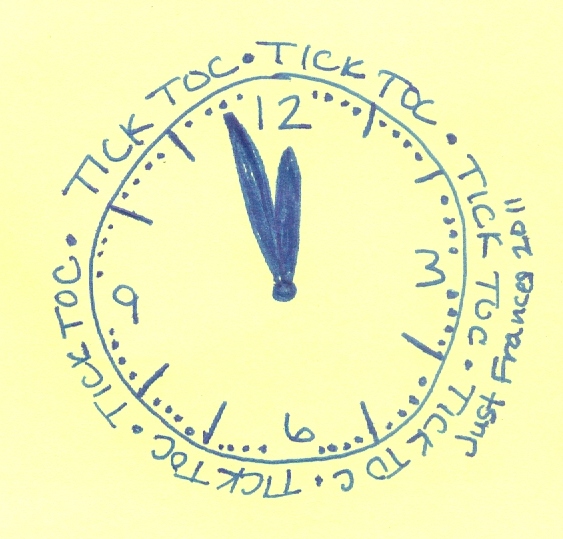I began recruiting participants for my main study in early September. At the time, I had this silly notion that I would be finished with my data collection by the end of October. Easy-peasy, right?
Wrong.
Because that naïve notion came with the assumption that people would be so excited to participate in my study that I would have all of my participants identified and signed up by mid-October. But by the time October came to an end, only seven participants had completed the study – less than 20% of my total sample of 45 people. (I didn’t even have all 45 participants by then.)
So… that was my first delay for my data collection.
But by that time, I had increased my participant numbers enough to where I thought I might be able to finish my data collection by the end of November – so long as I could identify a few more participants. But then, as often happens, some participants withdrew due to other commitments (whilst some just never responded past their initial agreement to participate). It happens. And It’s nothing personal, right?
By mid-November I found myself sending out more calls for participants, wondering just how I would manage to find a full set for each of my three age groups. And I realised – with great disappointment in myself – that I would have to delay my desired data collection deadline to the end of December. That’s OK though, because it’s only a two-month delay, right? And surely I won’t have to delay again, right …?
As November began to crawl to an end, I was excited to see that I had all of the Generation X participants I needed, and I even had inquiries from enough Generation Y- and Baby Boomer-aged people to complete those groups.
Yes, December was going to be my month! I just knew that by the end of December – by the end of 2015 – I would have all of my data collected. And for a while, I was actually convinced that I would actually manage it; that I would actually manage to collect data from all 45 participants (15 per group).
In fact, by the 3rd of December, I had completed data collection for Generation X. (Which is my generation group, so I took extra pride in my fellow X-ers for that.) By that time I also had a full set of volunteers who were on track to complete by the end of the month; by the end of the year.
However, as often happens, I lost a couple of people again. Darn! (No hard feelings; I totally understand that other things come up.)
I am now sitting on the very edge of my (delayed) goals of completing data collection by the end of 2015. I have enough volunteers (and a couple of back-ups in case there are more withdraws). I have two more interviews scheduled and another three tentatively scheduled. I also have two participants geared up to start the process next week – which might give me just enough time to get their interviews completed before the Christmas holidays.
In fact, I may be able to complete my data collection for Generation Y before Christmas – assuming no one drops out before then. (There are only three more interviews to go for that group, two of whom might be done before next weekend.)
However, I won’t be able to complete my Baby Boomer group until the New Year as I still need one more (confirmed) participant – and two of my participants can’t begin the process until January. (I need a total of six more completed data sets for that group, though one is scheduled to complete tomorrow.)
Am I a bit disappointed with the delay? Yes, of course, I am. Not because of the participants (for whom I am ever-so-grateful) but because I didn’t anticipate the process taking so long. I’m disappointed in myself for not having started to recruit earlier and for not having developed a better way of communicating with potential participants to minimise attrition rates.
However, a PhD isn’t just about the research and the thesis. A PhD is about learning how to do academic research. It’s about making mistakes and learning from them; it’s about creating best practices for the future; it’s about trial and error and coming out on the other end as a successful researcher.
So, are my data delays a failure? No, not really. They are merely a lesson in how best to manage the process for the next time. And explaining these learnings will be a great way to pad out that 80,000-word thesis at the end of it all!
And, of course, at least I can go into the New Year fairly confident that I will have completed my data collection by the end of January. I think. I hope. And I pray.
(And again, I have to say thank you to all of the people who’ve participated so far. Because without you, there would be no data. And no data means no PhD!)
